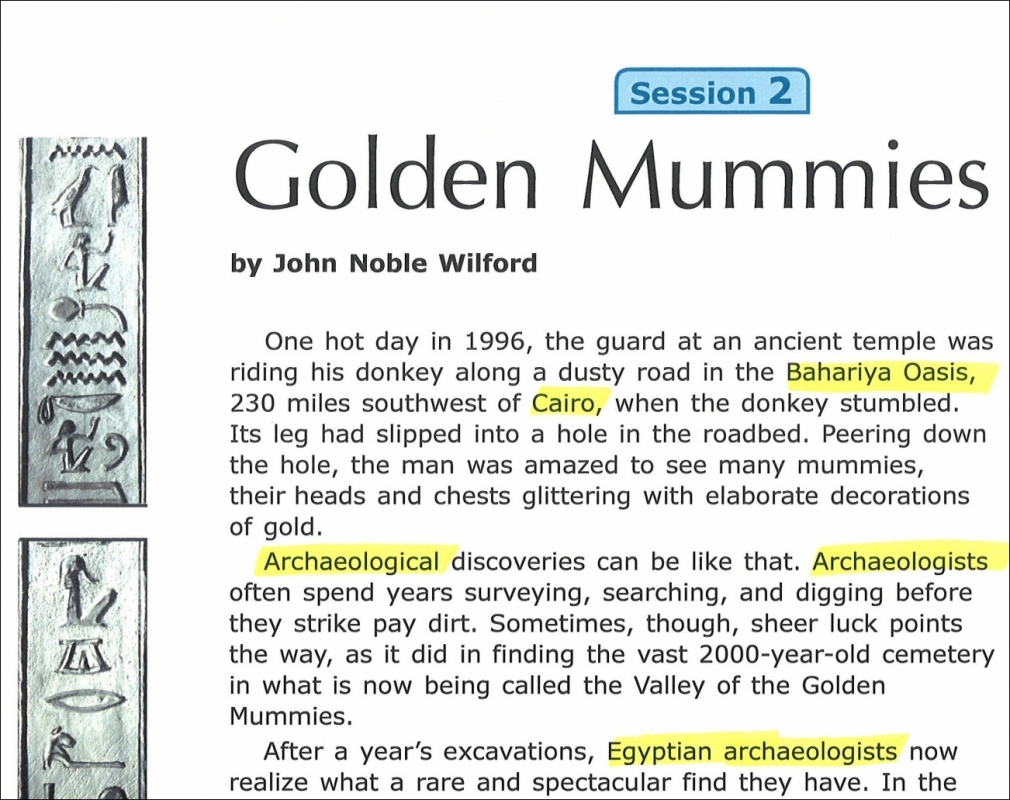Learning Center
reading
Maintain fluency despite difficult words
February 14, 2014

Reading passages on unfamiliar topics sometimes include proper nouns—the names of people, places, inventions, cultures, traditions, etc. that students have never heard of. Not only do they lack background knowledge on the concept, but they often can’t even pronounce the word.
When a struggling reader comes to such a word, he tends to slowly and robotically sound it out. And if the entire passage is about the topic, then that word likely appears over and over. Each time the student encounters the word, he stalls his fluency to decode and pronounce it. Without steady pacing and fluency, comprehension is much more difficult.
Provide students a strategy for such situations. Encourage them to abbreviate the term using only the initial letter. For example, if they were reading a passage about a Maserati, the reader simply abbreviates the sports car to “M.” Or if Tijuana came up over and over and was a tricky word, the reader could refer to the city as “T.” Or, if the character in a story or historical event had the name Sergey, students struggling should rename him “S.”
Remember the big picture—we want students to maintain fluency to aid comprehension.
TIP #1: Don’t replace the word
Don’t encourage students to change the hard-to-pronoune word (e.g., Sergey to Bob). If the student replaces multiple names in the same passage to Bob, Tom, and John, they will likely not remember who was who when it’s time to answer questions.
TIP #2: Use the strategy in read alouds
Be sure to allow students to utilize this strategy in class read alouds. If it’s not an everyday habit for them, then it won’t be one they employ during a standardized test.





